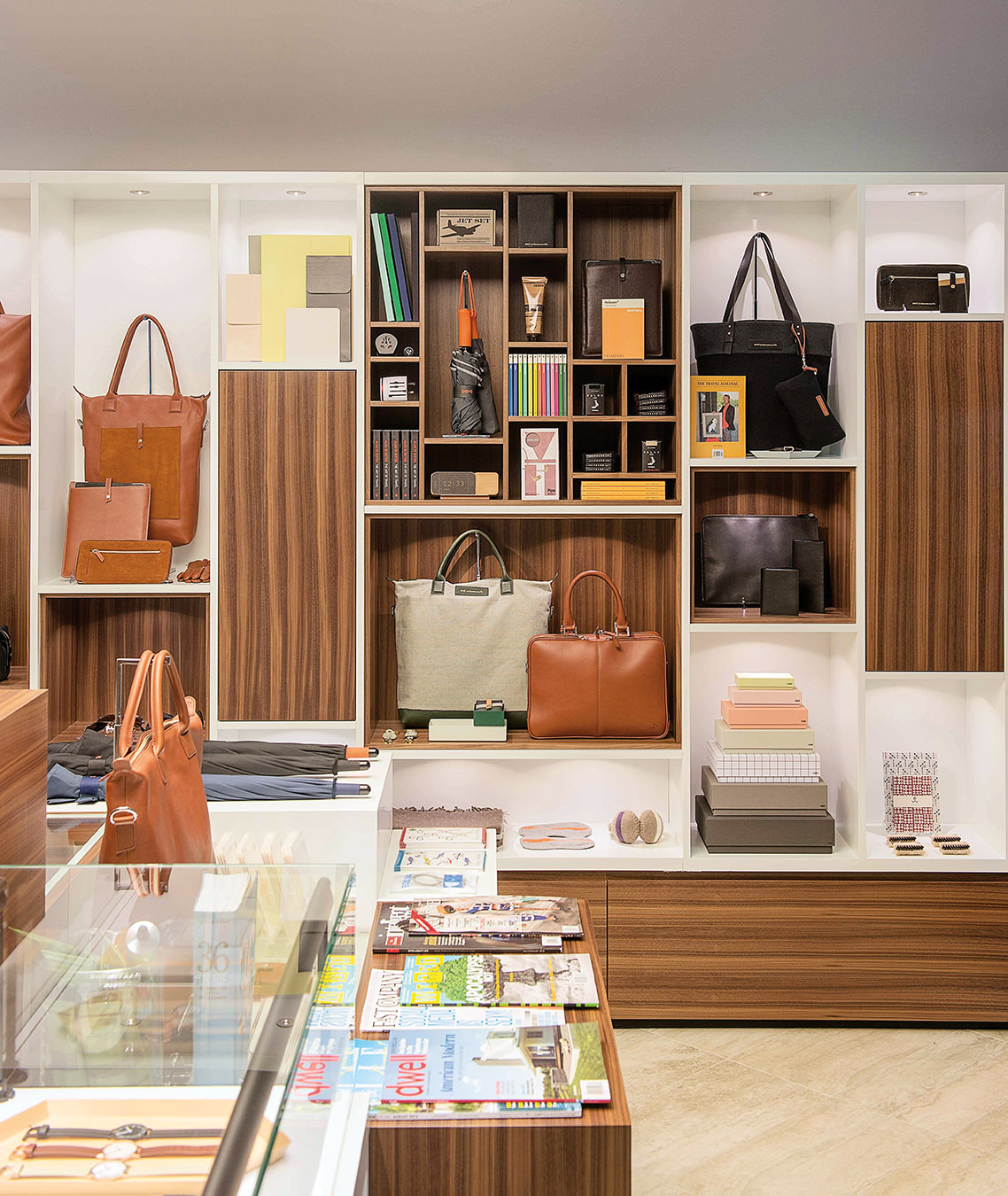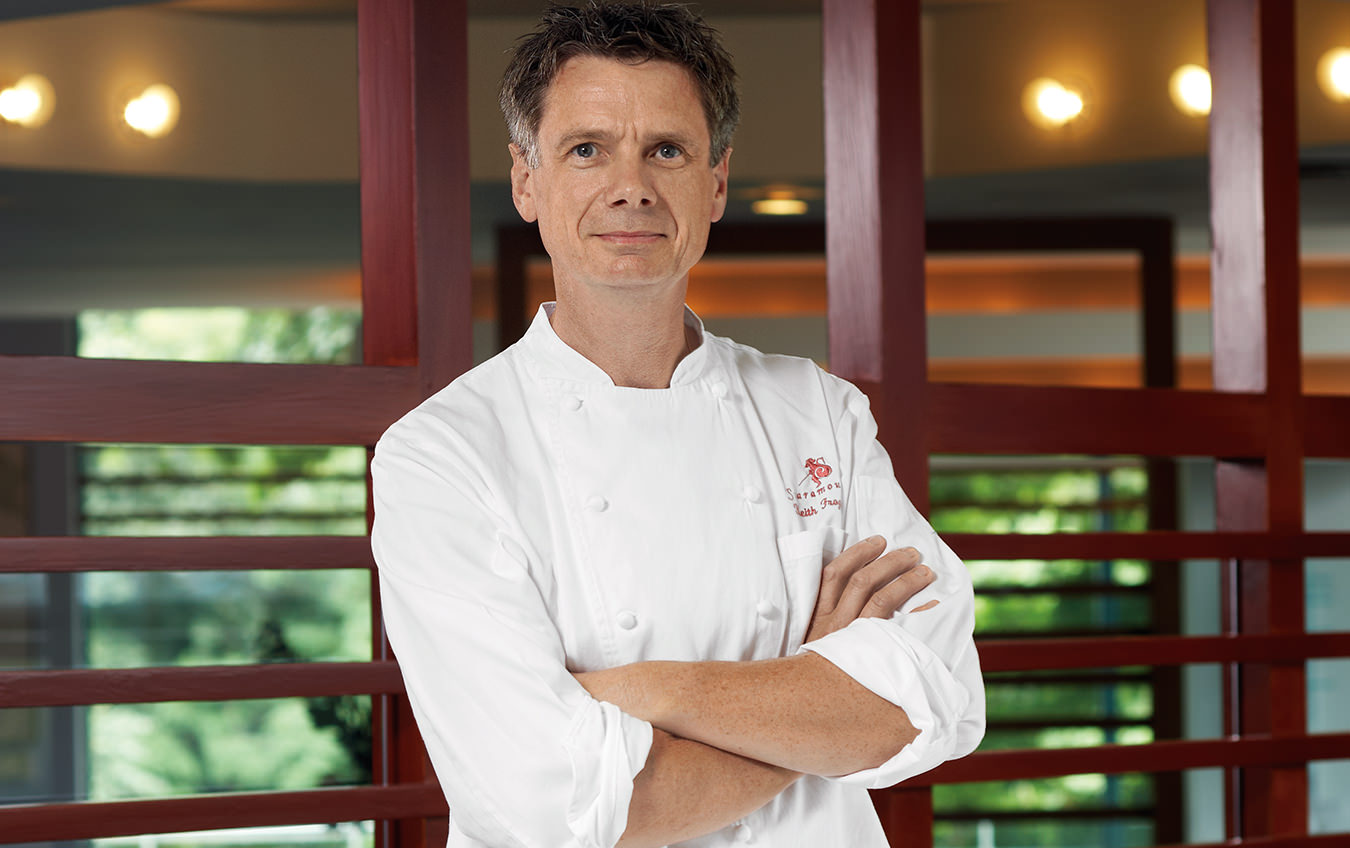Behind the Toronto Pop-up Bakeries Making Lockdown More Bearable
Bread, pastries, and something to look forward to.
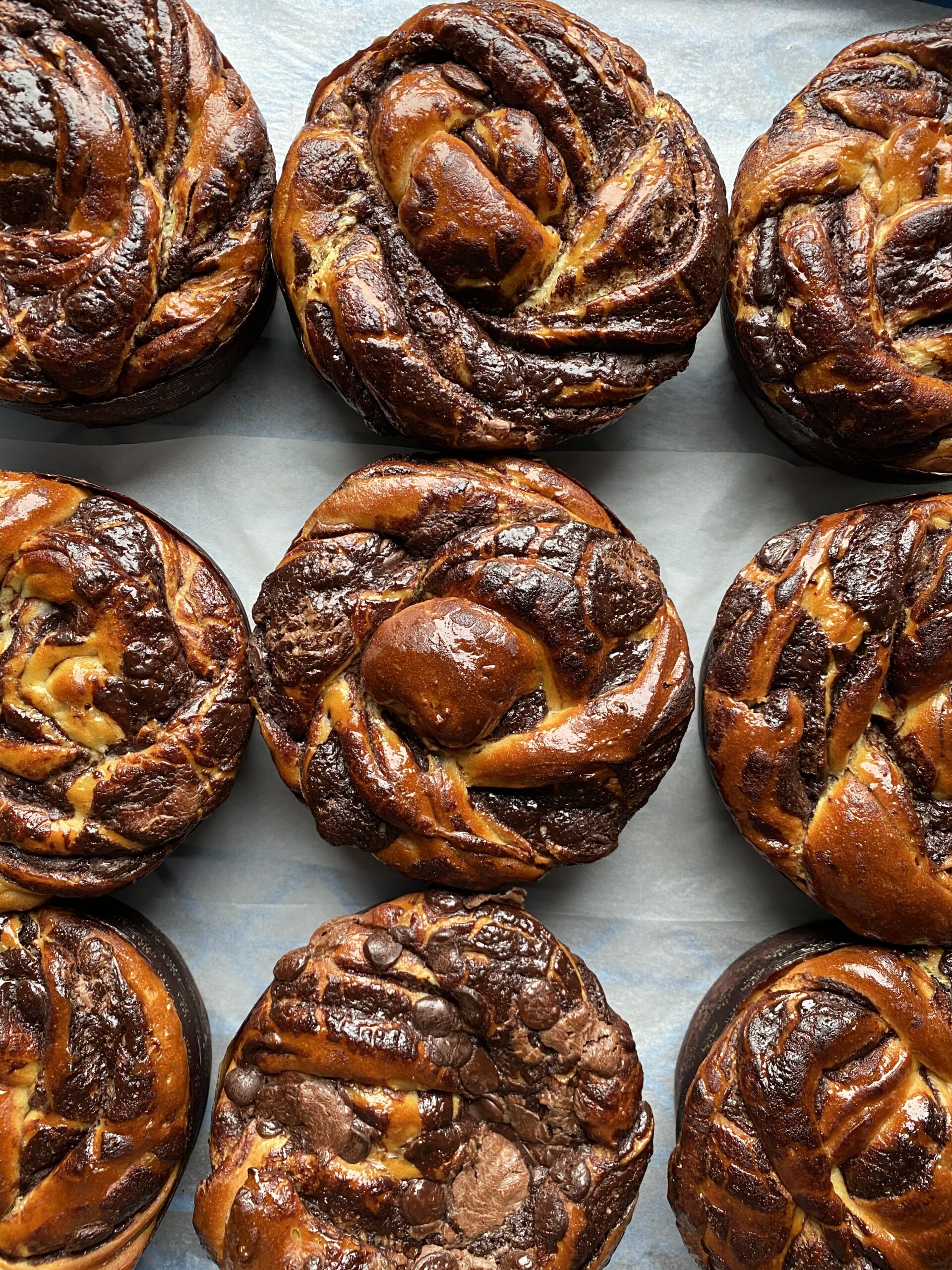
Lev Bakery.
Pop-up bakeries have been springing up across Toronto since the early days of COVID, but most of these innovative lockdown-era businesses are run by professional bakers and restaurateurs with big post-pandemic plans. While many of Toronto’s beloved eateries have been forced to close their doors this past year, the city’s community of skilled culinary professionals have found new ways to make connections with their customers (hat tip: Instagram) while continuing to serve the kind of goods sustaining us through this less-than-wonderful time.
Insta-sweets
From babkas to butter tarts to Venezuelan golfeados, if you’re craving something fresh-baked, there’s likely to be a pop-up catering to that exact need somewhere in the city—you just have to know where to find it. Often derided as a platform for the meaningless and mundane, Instagram has been a bridge between Toronto’s pop-ups and their customer base.
“Selling through Instagram was huge for me. Huge,” says Daniel Sáez, the baker behind the Junction neighbourhood’s Noctua pop-up, which will soon move into a permanent space.
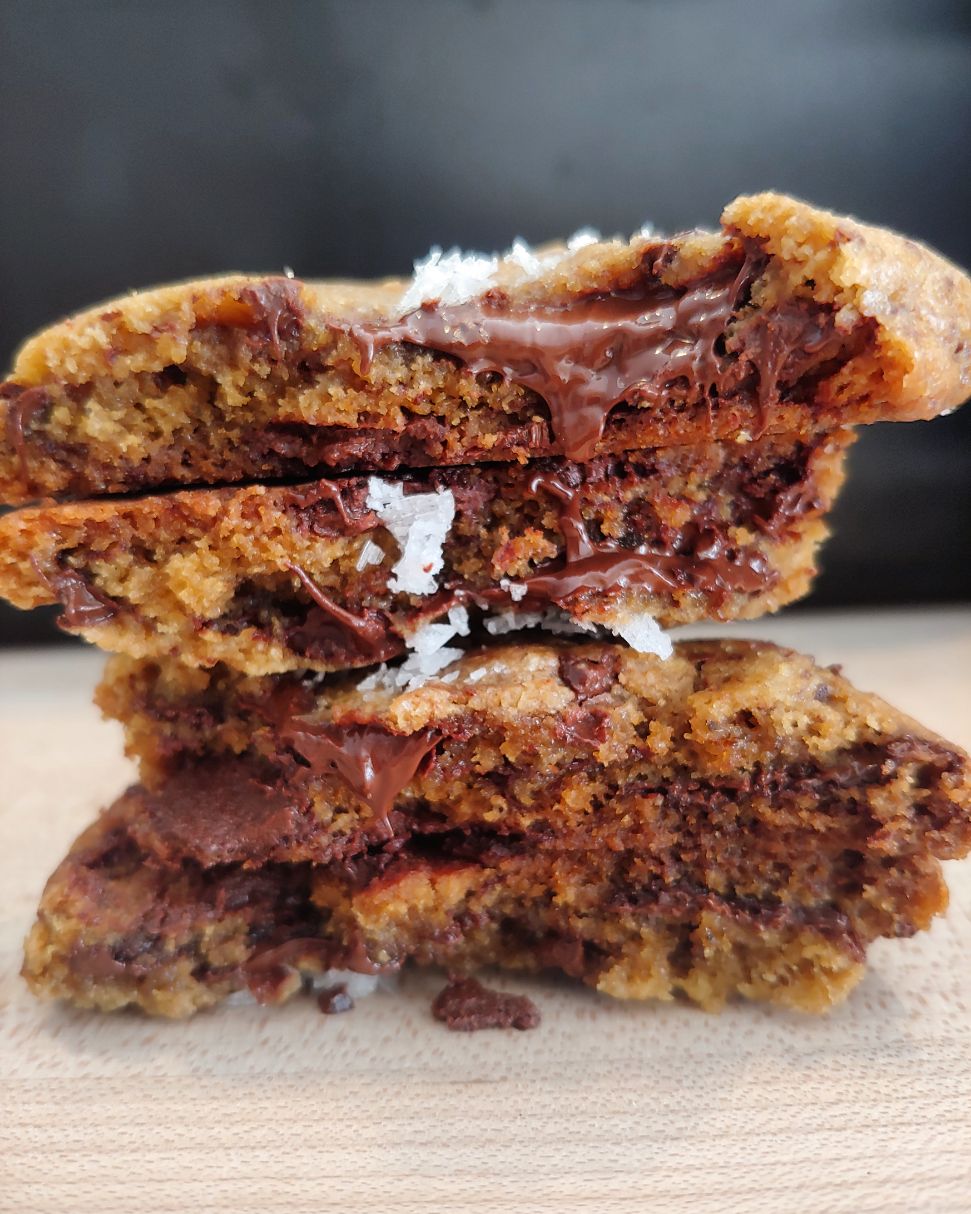
Ba Noi Bakery.
These social media techniques have forged more personal connections between bakers and buyers, accelerating the process in which a customer becomes a regular. “We have the website built, we have the order stage pretty much ready, but we’re actually enjoying staying on Instagram and talking to people and getting to know them,” says Yoni Kamil, who runs Lev Bakery with his partner Samantha, selling out of their home in Bloorcourt Village. “It was like, here’s an opportunity to really make connections, which is so important when you don’t have a brick and mortar store, and people can’t come in every week, and they don’t know me because they can’t see me working there.”
The platform has also become a useful tool to navigate everything from COVID retail rules to applying for funding to baking bread in nontraditional ovens. Instead of figuring it all out on their own, entrepreneurs were pooling intellectual resources, lightening the mental burden at a time when it was already overwhelmingly heavy. “We support each other with certain things like going through the administrative process with the government: ‘What do I have to apply for right now? How do I do it?’ Or, ‘Okay, second lockdown. What does that mean for you? What are you going to do?’ These are conversations I’ve had,” says An Tran, the baking brains behind the ridiculously popular Ba Noi bakery, where queues for sourdough, chocolate chip cookies, and butter tarts extend down the block (although everything is ordered and spoken for in advance).
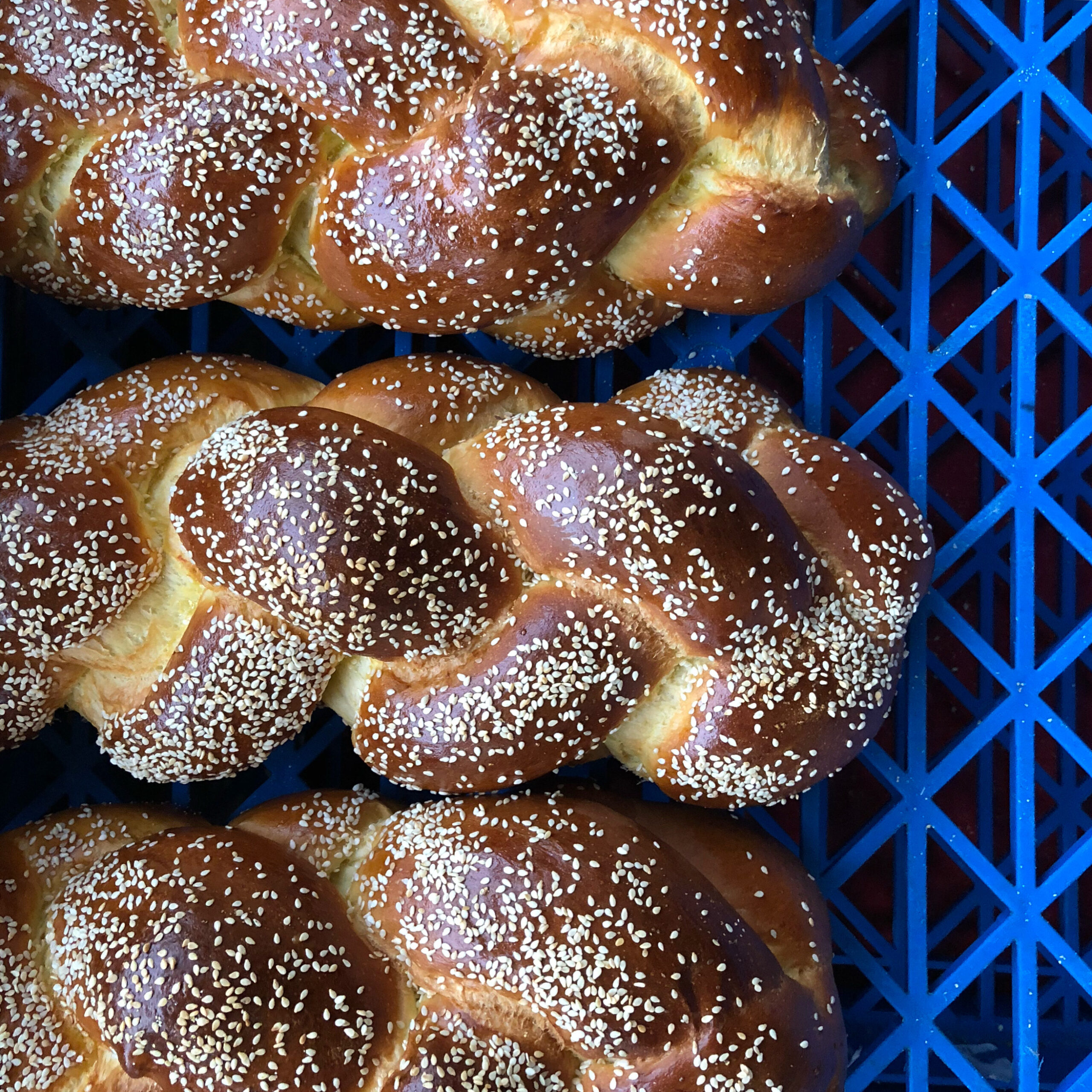
Lev Bakery.
Simple Comforts
And while these baking ventures were not designed specifically for the pandemic, it certainly has had something to do with their popularity. “There’s real comfort in baked goods,” says Nika Di Donato, whose Sunday Morning Pies service delivers handcrafted frozen pies to customers to bake at home. “The fact that it’s something special for your week—it’s an event, right? You get the pie, you put it in the oven, you have to wait that hour and a half, and then you have to let it cool. It adds a little joy to your afternoon, because we’re just experiencing so much stress right now.”
“I’ve always thought about baking being very different from restaurants. With restaurants, it’s very often what’s trendy, what’s new. Restaurants, like trends, come and go. But baking is very habit-forming. People want the same loaf of bread that they had when they were a kid,” Kamil says.
Upping Accessibility
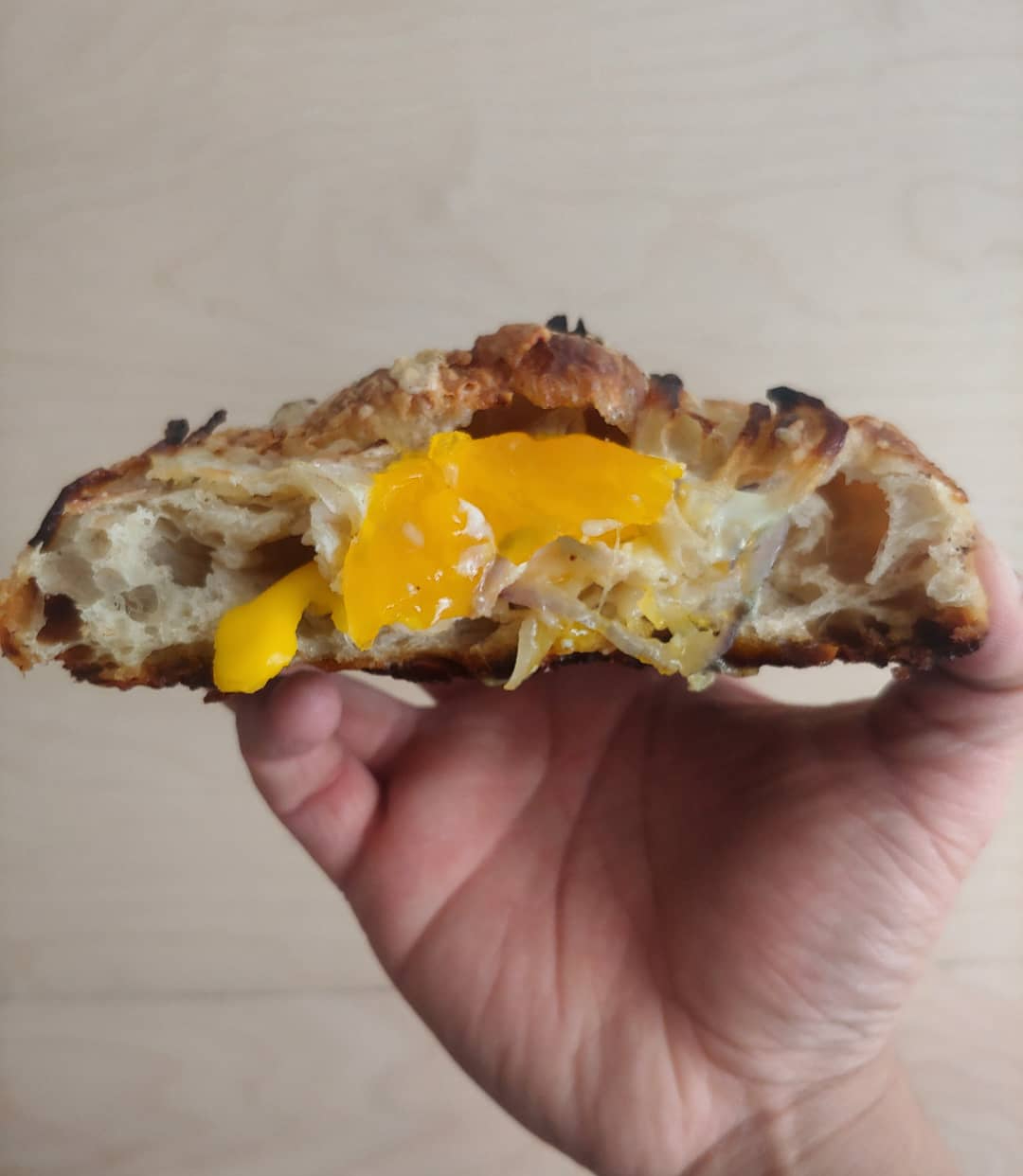
Ba Noi Bakery.
Neighbourhood pop-ups are also increasing accessibility to the kinds of foods that may not have been available before. “A lot has become very apparent during the pandemic,” Tran says. “Accessibility to food is one of them. Being in the restaurant industry is hard because there’s so much food waste. And because of labour, high rent, and bills, you have to cost your food at a certain price point. I’ve always tried to find ways to keep a price point low, especially with things like bread, which is such a staple for so many households.”
Community fridges and other charitable organizations have benefitted from these pop-up bakeries, too. Tran bakes extra loaves of sourdough each week, dropping them off at a nearby fridge. Sáez freezes his leftovers to be picked up by a local organization that employs newcomers to Canada and people who’ve been subjected to domestic violence.
As for the future of these businesses, the model suggests a change to come in the food services industry. “I think there are ways,” Kamil says, “that have kind of become more normalized during the pandemic, to serve customers in a retail fashion that doesn’t involve a brick and mortar.”



